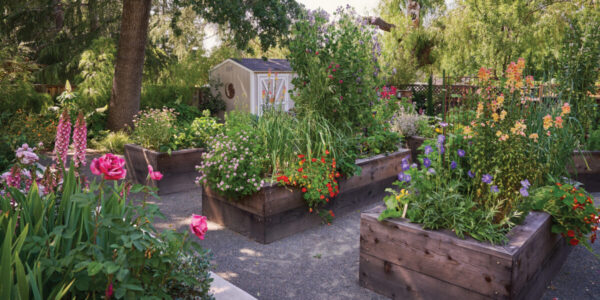
The Brew Crew rides again
Just to recap, the Brew Crew made beer and it was good. But many enthusiasts could say we “cheated,” using extract instead of starting with the hops and grains in their raw state.
Make no mistake: We are willing to brew as much beer as necessary to establish our cred. So we’re going at it again, and starting from scratch; in fact, we’re even growing our own in the Sunset test garden. (Some team members considered converting the famed Sunset lawn to a wheat field, but our beerless leader Rick LaFrentz also happens to be the head gardener so that notion didn’t last long.)
Our growing update follows…
By Rick LaFrentz, Sunset head gardener and beerless leader
A couple of days before one of our worst winter storms, I planted the soft white winter wheat seeds. Lord knows I didn’t have to water it in.
The barley is up and growing. Hopefully we can keep the birds from eating the toils of our labor.
Now we sit back and wait for the plants to grow and develop seed heads, or grain.
We need these grains for their sugar, which is necessary for the fermentation process. Most grains are initially vehicles of stored starch, but we want them to move on to the next step in their development, germination, when they convert to a food source, sugar.
While the wheat we’re using does this conversion on its own, we’ll have to go through the malting process with our barley crop. We’ll store the seed heads in constant humidity until the grain thinks it’s time to germinate, to shift from starch to sugar. We’ll arrest the conversion at that point, probably by putting them in an oven. (If we wanted to create a beer with a darker, roasty flavor we’d really heat up the grains.)
For the all amateur grain beer makers there are beer catalogs and brew stores that carry these grains already malted. In fact, I know of only one brewery that malts its own grains and that’s Coors. The rest of the breweries, both large and small, buy their grains already malted.
So obviously we have our work cut out for us.
